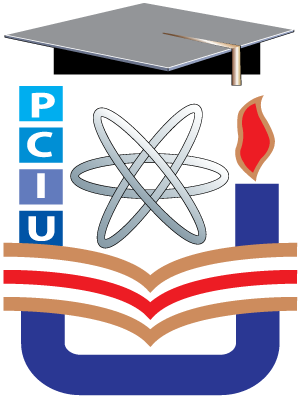Faculty of Science and Engineering
PCIU has a distinguished tradition in science and engineering, and was one of the best universities to establish engineering, computer science & engineering, electric & electronics engineering, civil engineering and textile engineering, fashion design and technology,natural science departments. The Faculty today provides research and teaching excellence across engineering, science and mathematics in five academic Schools ( Electric & Electronic Engineering and Computer Science & Engineering, Civil Engineering and Textile engineering; See the undergraduate and postgraduate sections for programme details.)
Department of Computer Science and Engineering
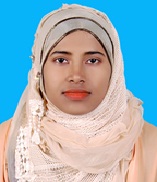
Welcome to the Department of Computer Science and Engineering. The goal of our department is to facilitate our students to be the best computer engineers and contribute to the development of our nation as well as the whole world with their creativities. We also have our faculties with their best knowledge and research activities. Our faculties are also so friendly and helpful to our students. Hence the relationship of teacher-student is very friendly and powerful here. Students get extra-curricular activities for their betterment. We also help students how to build a career easily in a competitive world. Department helps the students academically with different activities such as seminar, workshop, programming contests, training on different related topics. Choose the best one to be the best and stay safe.
Vision of the Program
The vision of the Computer Science and Engineering Department is to provide its students with the knowledge and skills to solve a variety of Computer Science problems as well as advanced engineering research.
Mission of the Program
The missions of the Department of Computer Science and Engineering are:
|
M1 |
To provide fundamental software skills and professional IT values. |
|
M2 |
To equip the graduate to develop software-based solutions to problems in a variety of contexts. |
|
M3 |
To have curricula those conform to the highest international standards. |
|
M4 |
To give a grounding in all the core areas of computer science. |
|
M5 |
To emphasis on the most state-of-the-art ways of software engineering to be used in the IT industry. |
Program Educational Objectives (PEOs)
The Program Educational Objectives (PEOs) of the Department of Computer Science and Engineering are:
|
PEO1 |
Prepare graduates to have knowledge and competency for careers in Computer Science & Engineering and related domains |
|
PEO2 |
Prepare graduates to become leaders in fields related to Computer Science and Information Technology |
|
PEO3 |
Pursue higher education in Engineering or other Professional fields |
Program Learning Outcomes (PLO)
The Program Learning Outcomes (PLOs) for the Department of Computer Science and Engineering are:
|
PLO1 |
Apply knowledge of mathematics, natural science, engineering fundamentals and Computer Science & Engineering respectively to the solution of complex engineering problems. |
|
PLO2 |
Identify, formulate, research literature and analyze complex engineering problems reaching substantiated conclusions using first principles of mathematics, natural sciences and engineering sciences. |
|
PLO3 |
Design solutions for complex engineering problems and design systems, components or processes that meet specified needs with appropriate consideration for public health, and safety, cultural, societal and environmental considerations. |
|
PLO4 |
Conduct investigations of complex problems using research-based knowledge and research methods including design of experiments, analysis and interpretation of data, and synthesis of information to provide valid conclusions. |
|
PLO5 |
Create, select and apply appropriate techniques, resources and modern engineering and IT tools, including prediction and modelling, to complex engineering problems, with an understanding of the limitations. |
|
PLO6 |
Apply reasoning informed by contextual knowledge to assess societal, health, safety, legal and cultural issues and the consequent responsibilities relevant to professional engineering practice and solutions to complex engineering problems. |
|
PLO7 |
Understand and evaluate the sustainability and impact of professional engineering work in the solution of complex engineering problems in societal and environmental contexts. |
|
PLO8 |
Apply ethical principles and commit to professional ethics and responsibilities and norms of engineering practice. |
|
PLO9 |
Function effectively as an individual, and as a member or leader in diverse teams and in multi-disciplinary settings. |
|
PLO10 |
Communicate effectively on complex engineering activities with the engineering community and society at large, such as being able to comprehend and write effective reports and design documentation, make effective presentations and give and receive clear instructions. |
|
PLO11 |
Demonstrate knowledge and understanding of engineering management principles and economic decision-making and apply these to one’s own work as a member and leader in a team, to manage projects and in multi-disciplinary environments. |
|
PLO12 |
Recognize the need for, and have the preparation and ability to engage in, independent and life-long learning in the broadest context of technological change. |
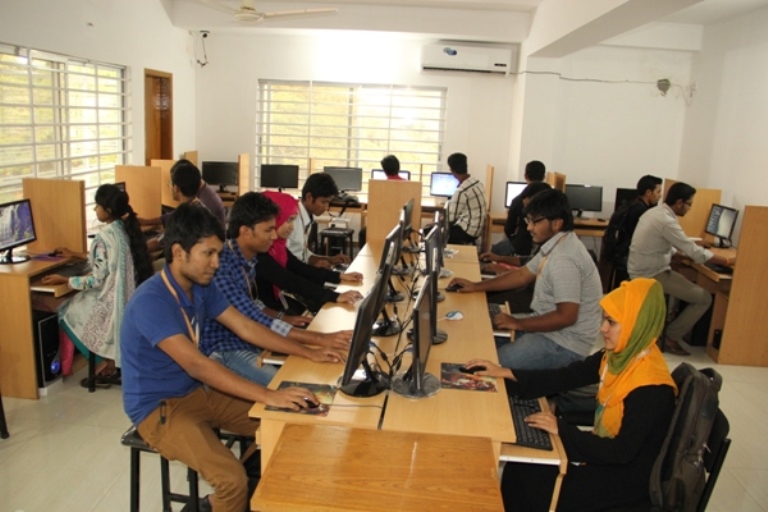
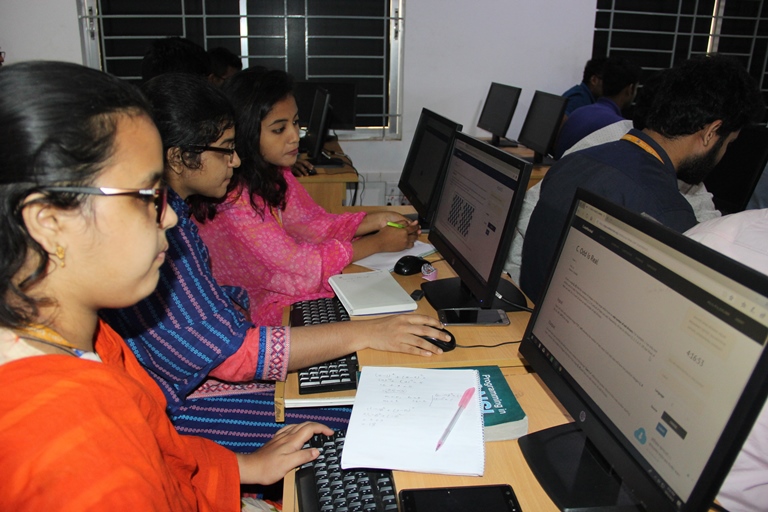
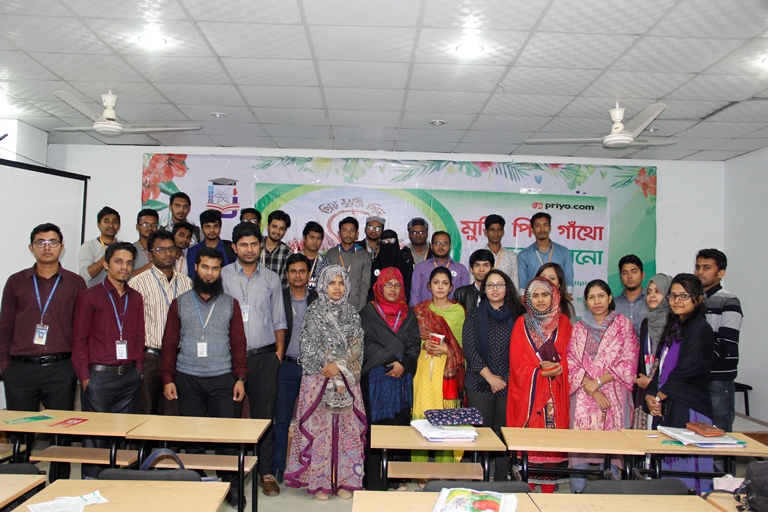
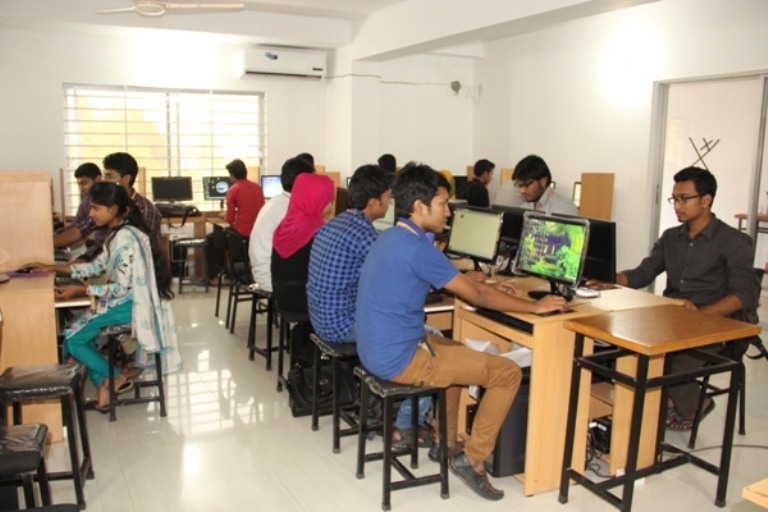
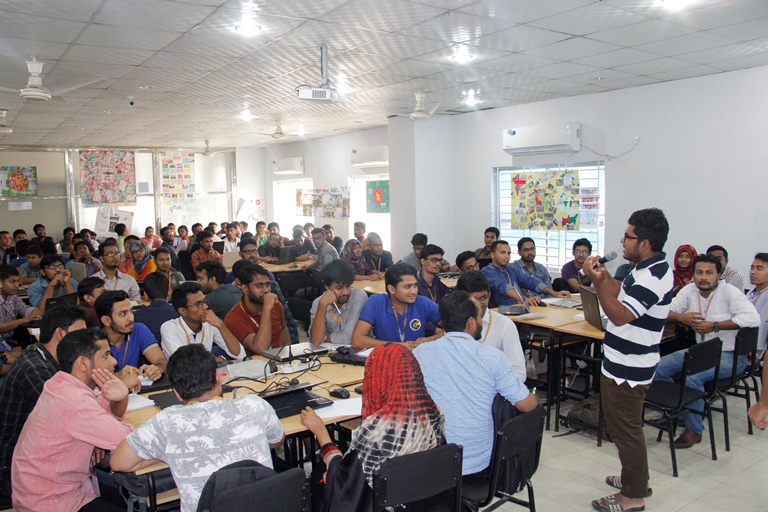
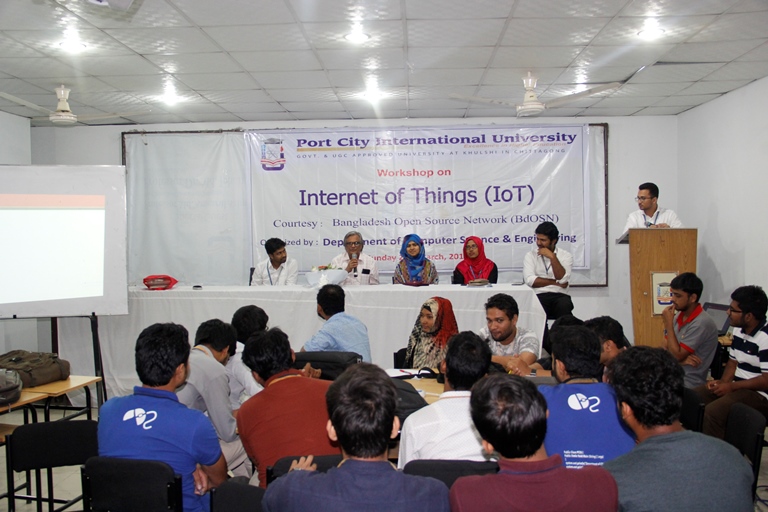
Department of Electrical and Electronic Engineering
The Department of Electrical and Electronic Engineering (EEE) was established at Port City International University in 2012 when it started its activities and offers 4 Years graduation program leading to the degree of B.Sc. in Electrical and Electronic Engineering. Electrical and Electronic Engineering is a field of engineering that generally comprises of a number of subfields including electrical power engineering, electromagnetism, electronics, digital systems, telecommunications, electrical machinery and drive systems, control systems, RF engineering, signal processing, instrumentation, and microelectronics which are covered with the excellence of the faculty members of this department. The department is committed to the study and analysis of fundamental as well as applied problems. Teachers and students of the department work in solving problems in the fields of conventional and renewable energy generation, transmission and utilization, power system planning, reliability, operation, control and protection, machine and drives design, microwave circuitry, micro-strip antenna design, remote sensing, design and synthesis of VLSI circuits, semiconductor device design and characterization, digital signals and image processing and bio-medical signal conditioning and identification of processed signals etc. The curriculum has been designed in such a way that helps to develop the ability of students’ to cope with our rapidly changing society as well as their morality to contribute their learning to humankind.
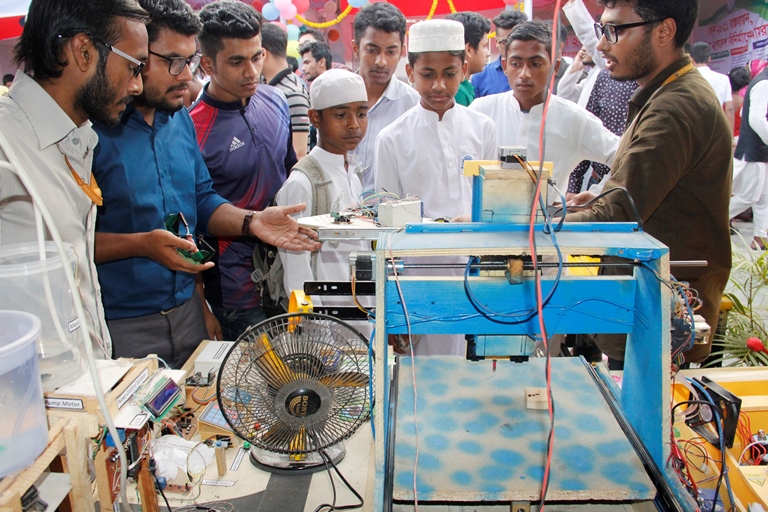
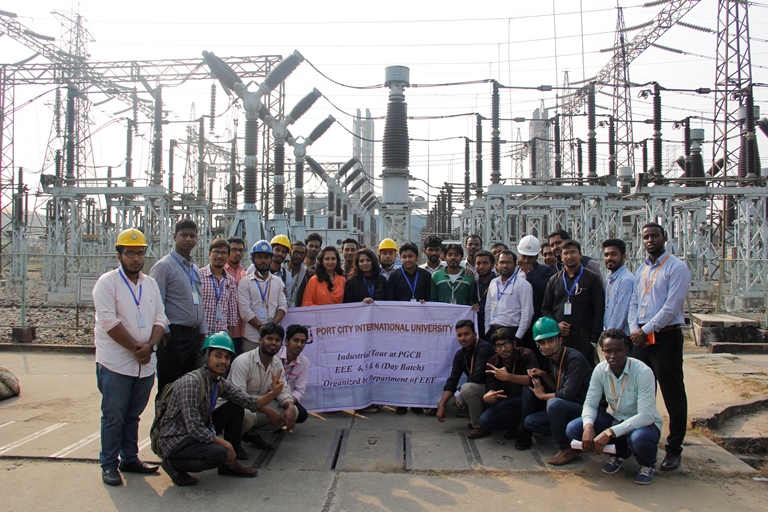
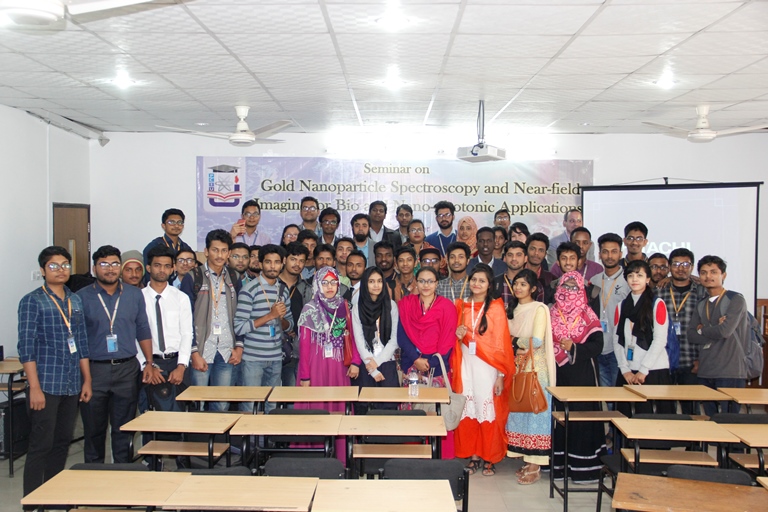
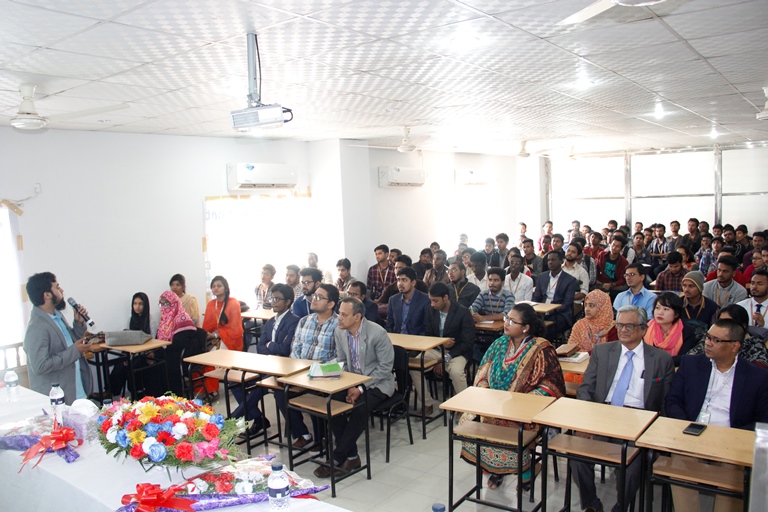
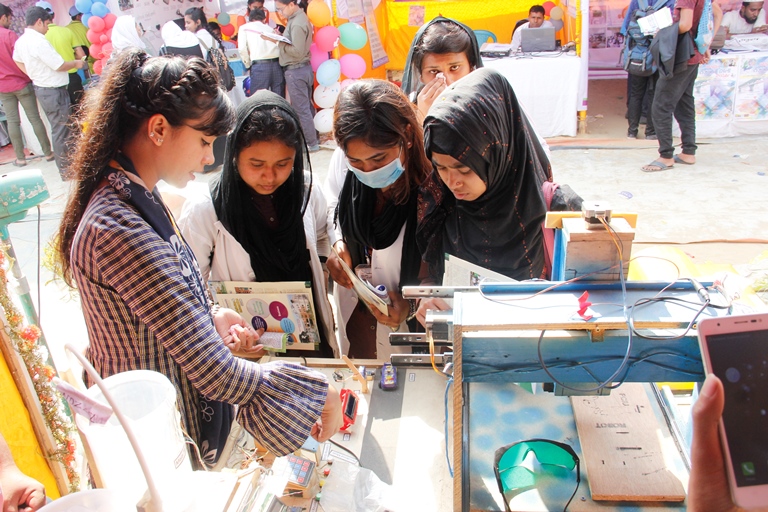
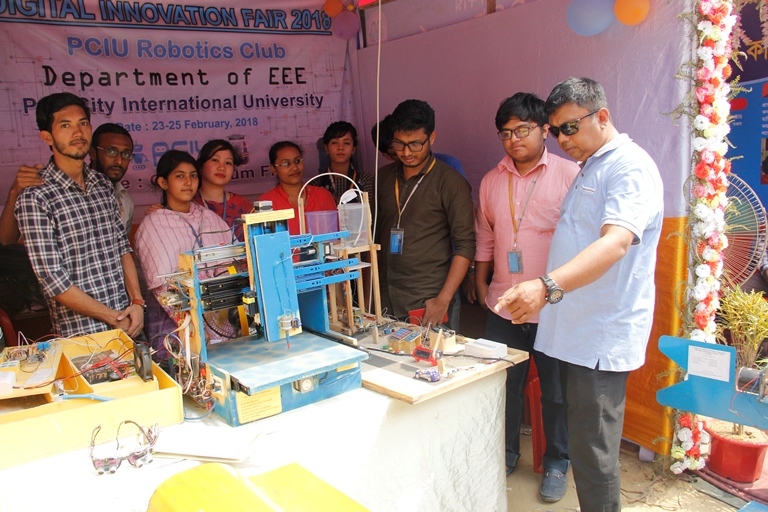
Department of Civil Engineering
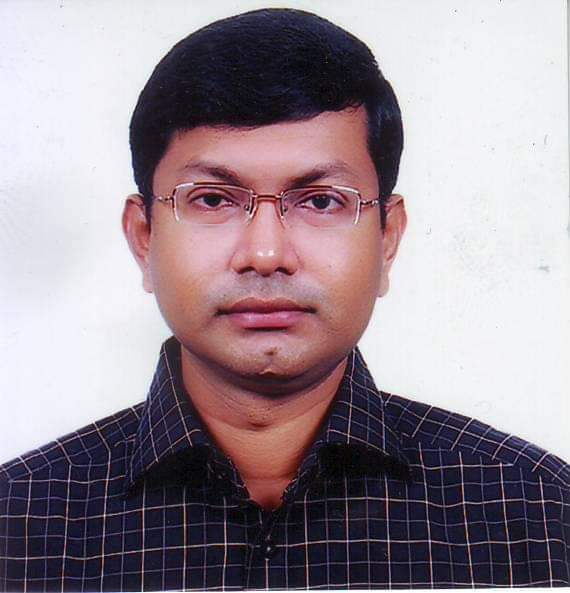
Welcome to the website of the Department of Civil Engineering of Port City International University (PCIU). Choosing the right academic program at the tertiary level is a crucial step for your career and your life. We offer you a very high-quality engineering degree and a unique opportunity to match engineering with the life you’ve always dreamed of achieving. Our engineering program will prepare you for success with core civil engineering knowledge, expert academic advising, world-class faculty, innovative learning, and a dedication to career advancement. One of the major strengths of our department is its extremely qualified faculty members. They mentor and provide all-out help to our students so that they grow as professional civil engineers by acquiring appropriate knowledge and practical experiences, attending technical seminars and conferences, and practicing leadership.
In a modern world, everybody is aware of critical infrastructure needs for the society that range from roads for safe and environmentally friendly transportation to buildings to buried pipelines for the distribution of clean water. To assure that public and private investments meet both our immediate and long-term needs, we must develop a sustainable mindset, innovative project management approaches, and technologies that create our future built environment. As you may know, civil engineering is a broad field that applies engineering principles primarily to the public domain infrastructure, including transportation, water resources, buildings, and other structures such as dams and bridges. Civil engineers plan, design, and supervise the construction of facilities such as high-rise buildings, airports, roads, water treatment centers, and sanitation plants. They balance the needs of society with technical and economic feasibility. PCIU’s civil engineers work to achieve safe and sustainable development through “green” engineering.
Starting its journey in 2013, the Department of Civil Engineering of PCIU has come a long way and has become one of the leading departments of the university. Since its inception, the department has endeavored to produce quality engineers to serve the nation and abroad. Well-equipped laboratory facilities and expanded curricula covering degrees in Bachelor of Science in Civil Engineering attest to the continuous development process of the department. Many of the graduates are working in different government and private organizations in Bangladesh. Numerous graduates are also working abroad. Some graduates are doing master's and Ph.D. in Bangladesh and abroad.
The department believes that academic activities supplemented by extra-curricular and relevant co-curricular activities will produce well-rounded students ready to tackle the challenges of the world. The department organizes different activities including fresher's reception, farewell, cultural program, religious festivals, a celebration of national occasions, quiz competition, debate competition, different kinds of seminars, and workshops related to academic matters and contemporary issues.
The objectives for the establishment of the Department of Civil Engineering are in line with the vision of PCIU to become an exemplary university of internationally acknowledged stature, and excellence in teaching, research, and scholarship. Furthermore, our academic program and learning environment have been designed to contribute to the quality and intellectual development of the students. Successful Civil Engineering graduates are creative, good communicators, and skilled at solving problems and delivering results. With these qualities, our graduates not only develop careers as high-quality practicing engineers but are also sought by top companies for their potential in management, finance, consulting, and other senior professional positions.
Please take a moment to go through the rest of our website and feel free to contact us or visit us anytime if you want to know more about us. We will be happy to assist you.
Vision of the Program
The Department of Civil Engineering at Port City International University (PCIU) aspires to be a leader in providing engineering solutions to sustainable infrastructure and the environment. In line with this, it maintains a high standard of teaching-learning system and will Collaborate with industries and other stakeholders to gain national and global recognition, and will attract quality students, faculty, and staff.
Mission of the Program
The missions of the Department of Civil Engineering are:
|
M1 |
Imparting adequate technical skills to its students with the up-to-date global knowledge base and a life-long learning ability |
|
M2 |
Preparing its students to become critical thinkers with effective analytical, communication, and leadership skills to meet high standards of excellence in the Civil Engineering profession and advanced studies |
|
M3 |
Ensuring that the students develop social responsibility and a deep sense of appreciation for diversity, tolerance, ethics, and sustainability |
|
M4 |
Contributing to teaching, research and innovation and maintaining an effective industry-academia relationship at national and international levels |
Program Educational Objectives (PEOs)
PEO1: Successfully apply analytical skills with critical thinking using mathematical, scientific, and engineering principles in formulating and solving civil engineering problems.
PEO2: Work Competently in diverse career choices on engineering decision-making and sustainable design Covering one or more Core civil engineering disciplines.
PEO3: Demonstrate professional, social, and ethical leadership through effective Communications, personal and professional contributions to society and the environment from national and global perspectives, and Commitment toward professional licensure and life-long education.
PEO4: Develop and promote new and improved skills Considering diversity and tolerance, and participate in the development of the civil engineering knowledge and practice
Program Learning Outcomes (PLO)
The followings are the PLOs for the department:
|
PLO1 |
Ability to apply the knowledge of mathematics, science, engineering fundamentals, and an engineering specialization to the solution of complex civil engineering problems. |
|
PLO2 |
Ability to identify, formulate, research the literature and analyze complex civil engineering problems and reach substantiated conclusions using first principles of mathematics, the natural sciences, and the engineering sciences. |
|
PLO3 |
Ability to design solutions for complex civil engineering problems and design system components or processes that meet the specified needs with appropriate consideration for public health and safety as well as cultural, societal, and environmental Concerns. |
|
PLO4 |
Ability to Conduct investigations of complex problems, considering the design of experiments, analysis, and interpretation of data, and synthesize the information to provide valid Conclusions. |
|
PLO5 |
Ability to create, select and apply appropriate techniques, resources, and modern engineering tools including prediction and modeling to Complex civil engineering activities with an understanding of the limitations. |
|
PLO6 |
Ability to apply reason informed by Contextual knowledge to assess societal, health, safety, legal and cultural issues and the Consequent responsibilities relevant to professional civil engineering practice. |
|
PLO7 |
Ability to understand the impact of professional engineering solutions in societal and environmental contexts and demonstrate the knowledge of, and need for sustainable development. |
|
PLO8 |
Ability to apply ethical principles and commit to professional ethics, responsibilities, and the norms of civil engineering practice. |
|
PLO9 |
Ability to function effectively as an individual and as a member or leader of diverse teams as well as in multidisciplinary settings. |
|
PLO10 |
Ability to Communicate effectively about Complex engineering activities with the engineering community and with society at large. Be able to comprehend and write effective reports, design documentation, make effective presentations and give and receive clear instructions. |
|
PLO11 |
Ability to demonstrate knowledge and understanding of the engineering and management principles and apply these to one’s work as a member or a leader of a team to manage projects in multidisciplinary environments. |
|
PLO12 |
Ability to recognize the need for and have the preparation and ability to engage in independent, lifelong learning in the broadest context of technological change. |
|
PLO13 |
Ability to demonstrate a sound knowledge of global and local Contemporary civil engineering issues. |
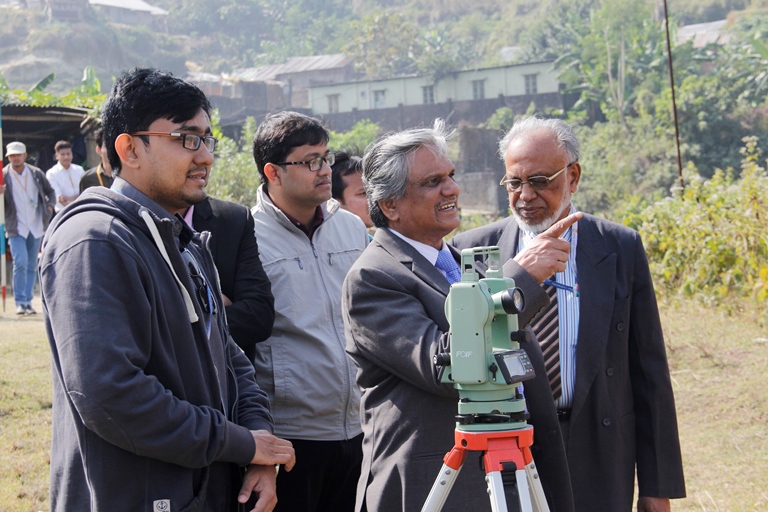
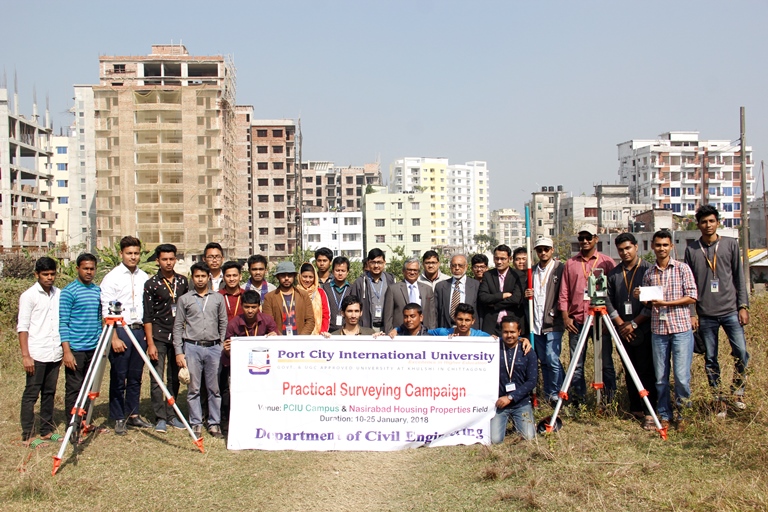
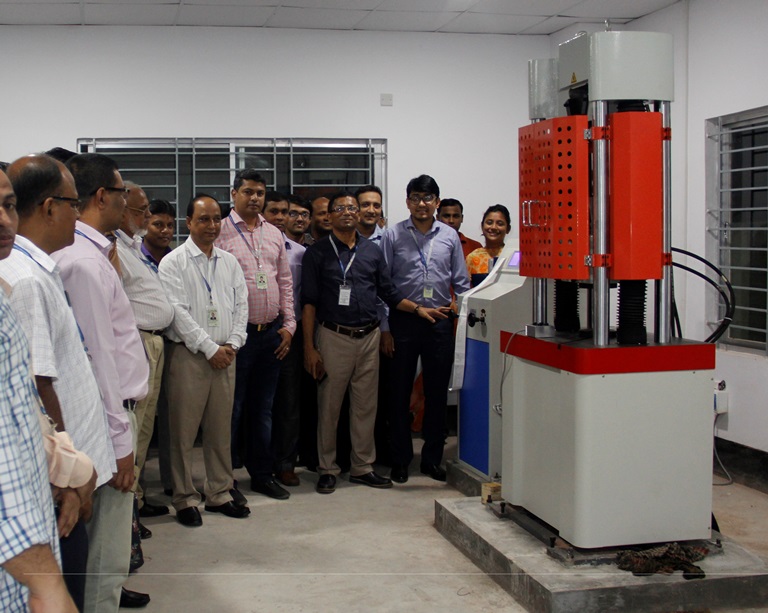
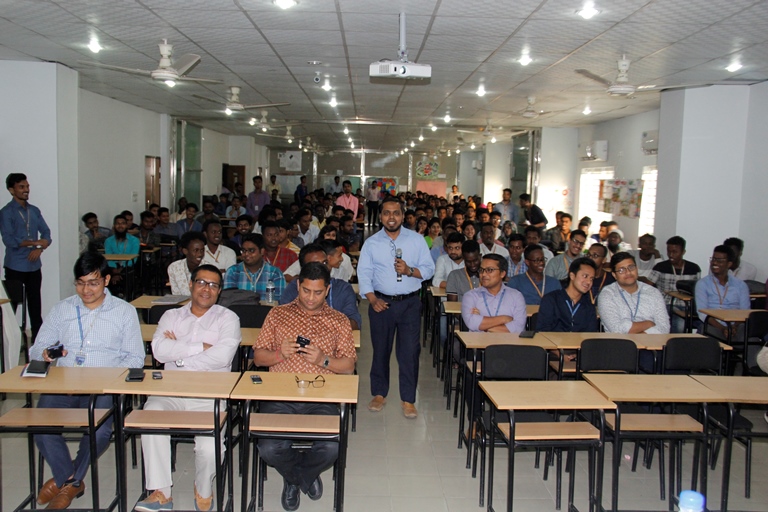
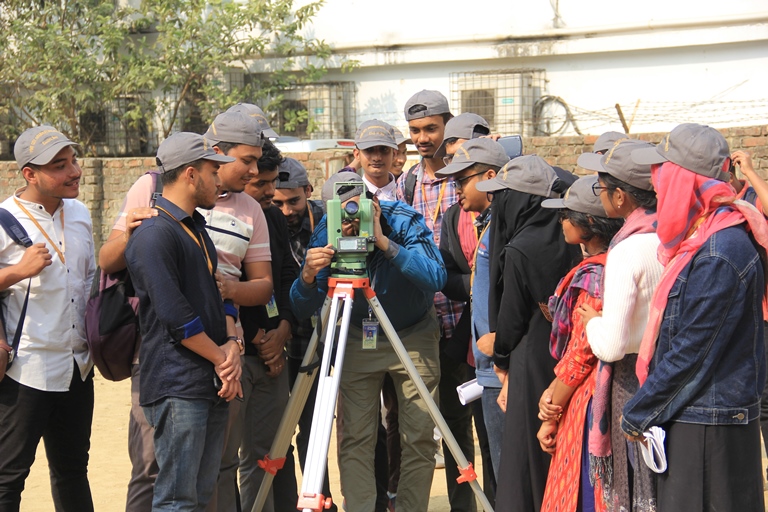
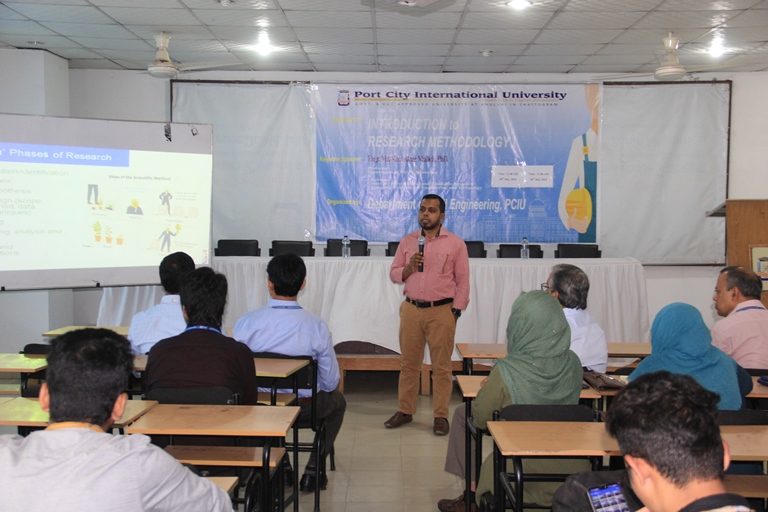
Department of Textile Engineering
WELCOME TO TEXTILE ENGINEERING DEPARTMENT
Bangladesh is a developing country and textile is the largest industrial sector of Bangladesh. We earned about 85% of our foreign currency from this sector. Over the last couple of decades the face of textiles has changed dramatically all over the world. The department provides an outstanding opportunity to students to get quality education in Textile Engineering.
It started its academic activities from January 2013. This department will help to produce qualified engineers with appropriate knowledge and skills for development of textile sector through expansion of facilities for modern textile education and research in the country. This department will help a lot to generate sufficient number of textile engineers in the country with a view to meet the ever increasing demand due to globalization and technological development, to provide up to date technological knowledge to various organization within and outside the country, to create opportunity for higher education and research in the field of textile, to develop professional manpower in the field of spinning, weaving, knitting, dyeing, finishing and garments. The relationship of the department with the local industries is strengthened through various programs such as seminars, workshop, conferences and different events.

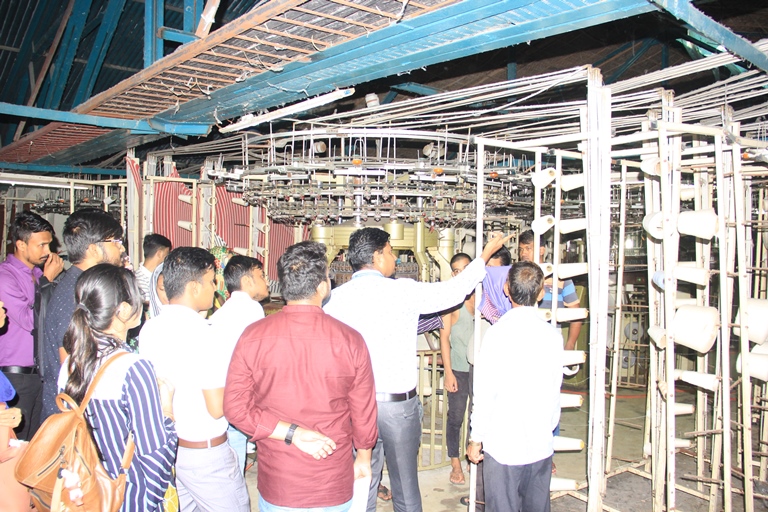
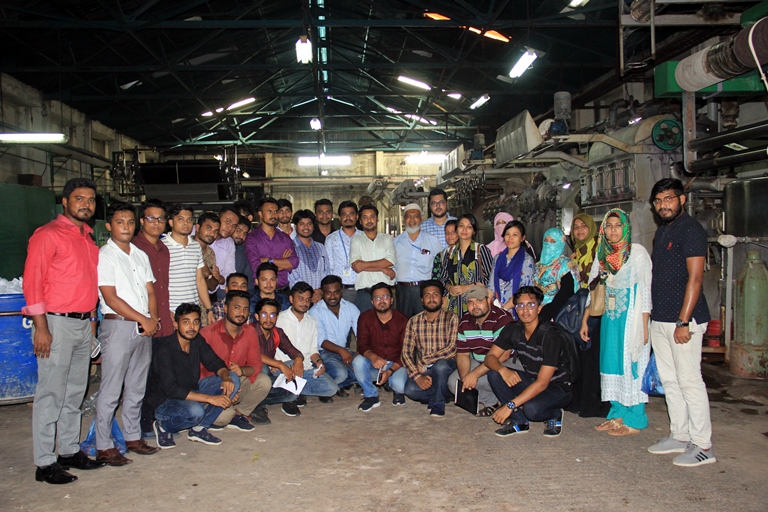
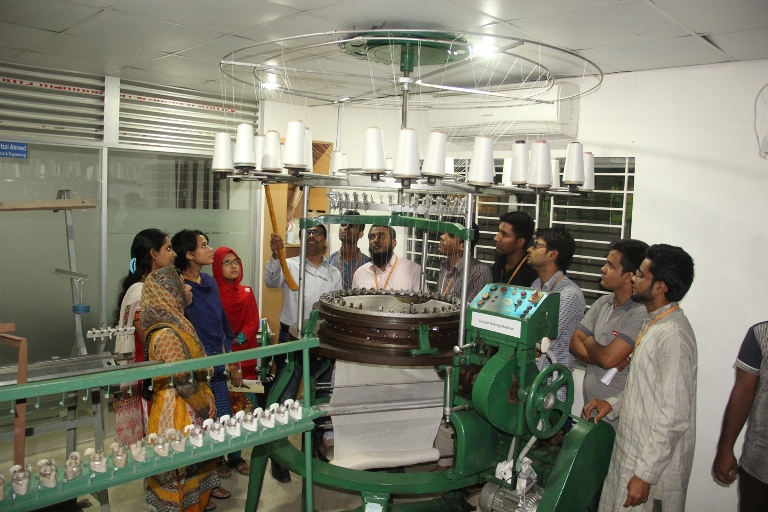
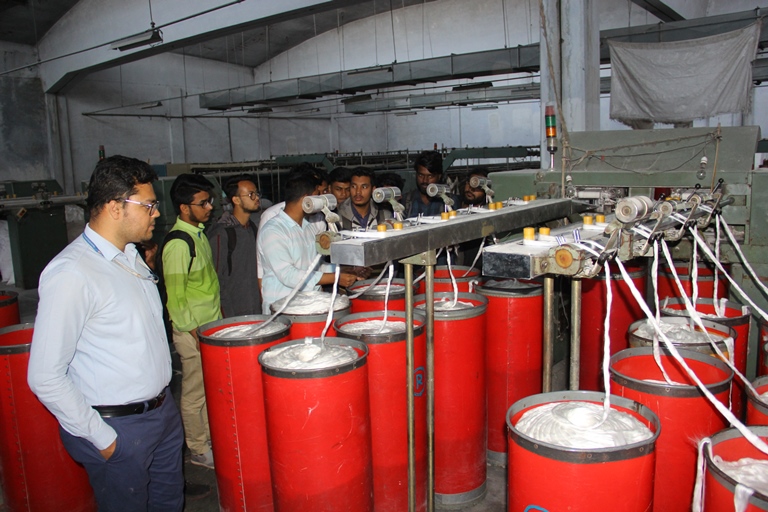
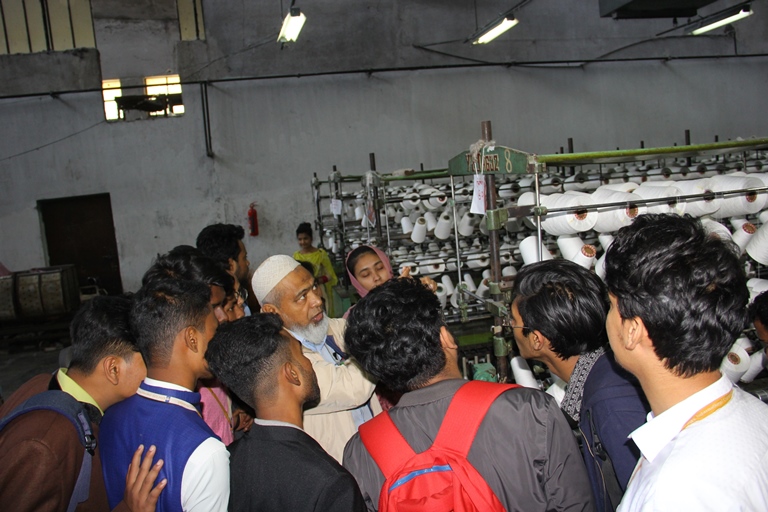
Department of Fashion Design and Technology
Department of Fashion Design gives wide range of career opportunities for the students, having your own establishment, working for top labels, fashion designers, garment export houses, textile mills, apparel merchandisers, also huge work scope in visual merchandising, public relations and marketing, styling and even being a lecturer for Fashion Institutes. One of PCIU’s major strengths is the brand itself, where we have top fashion brands, textile industry, fashion designers hiring from our pool of talent.
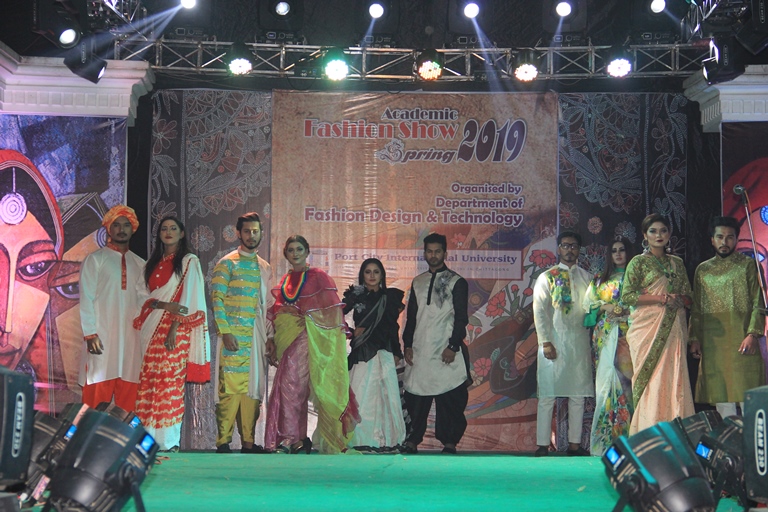
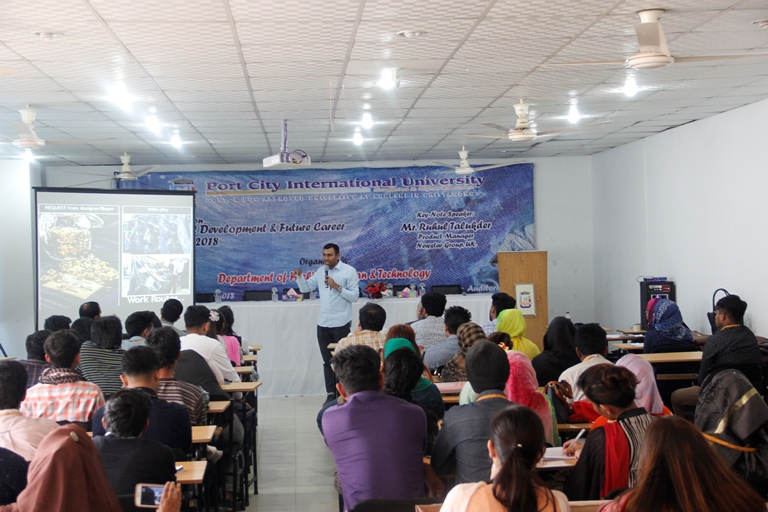
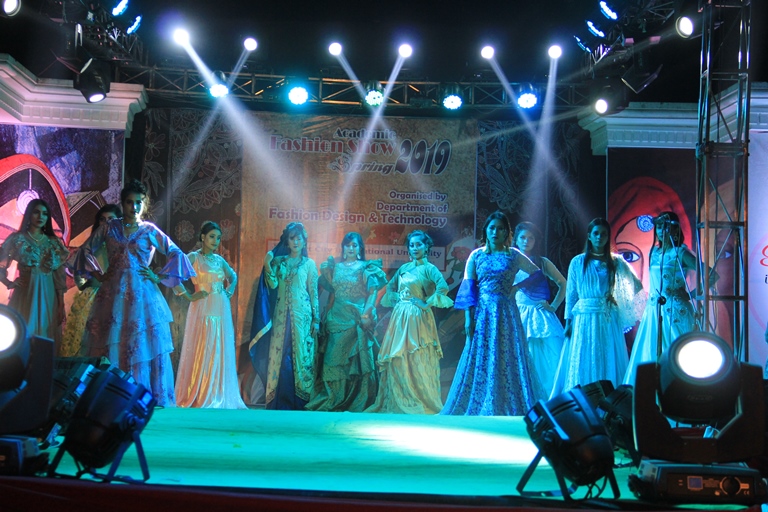
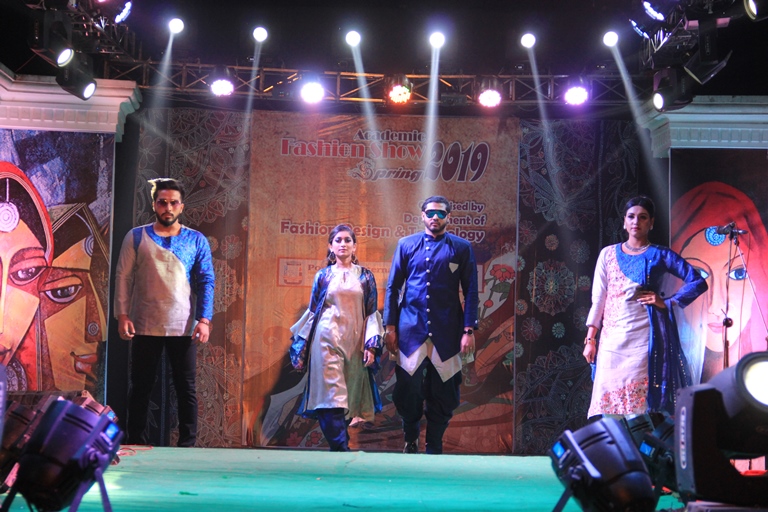
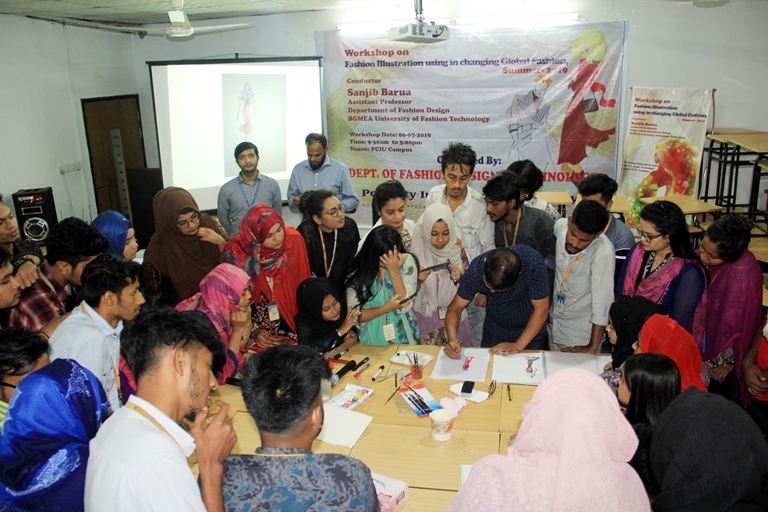
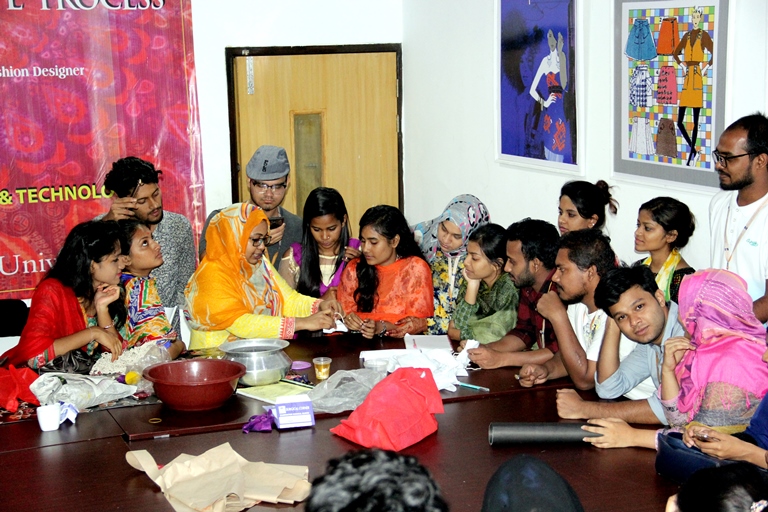
Department of Natural Science
Department of Natural Science (NSC) serves the knowledge of natural philosophy that dominating the development of the physical universe. NS is the framework within which Physics, Chemistry, Mathematics, Statistics, and History are taught and offers courses on need basis of Arts, Business, and Science & Engineering Faculties. Currently department offers courses like Mathematics, Business Mathematics, Physics, Chemistry, Statistics, and History of Bangladesh & Bangladesh Studies. The breadth of the course reflects the blurring of boundaries between the different sciences and encourages students to do great things with new ideas in the next couple of academic years. Fifteen faculty members with two adjunct faculties are working with excellent academic and research background under this department. ‘Enlighten the Nation with the Knowledge of Science’ being the motto of this department, faculties always work in a team with the highest professionalism making it easier to achieve the goal set each year. NS with dynamic leadership often organizes student-oriented creative programs, seminars, & various contests encouraging the students to overcome the fear of science over the year.
Course of mathematics
Course of statistics
Course of Physics
Course of Chemistry
Course of History
